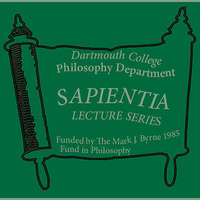Menu
- People
- Curriculum
- Foreign Study
- News & Events
Back to Top Nav
Daniel Smyth (Wesleyan). Kant's Infinities. Free and open to all. Reception follows. The Sapientia Lecture Series is funded by the Mark J. Byrne 1985 Fund in Philosophy.

Abstract: "Kant is commonly taken to have an "Aristotelian" notion of infinity, which treats purportedly infinite (and infinitesimal) quantities as merely "potentially" infinite (infinitesimal) in the sense that they are finite but always capable of further increase (or decrease). Canonical texts, I argue, demonstrate that actual infinities in fact play a central role in Kant's thought. Less canonical texts suggest an even more surprising view: there are (and we can mathematically establish that there are) actual infinities of different sizes – a view subsequently developed by Kant's student, Schultz. Yet Kant simultaneously denies that we can determine the exact size of any infinitary quantity. We can show that infinities come in different sizes, but we cannot determine what size any give infinitary quantity has. I argue that this limitation on our mathematical knowledge of the infinite (viz. of the exact size of particular infinite quantities) stems from the influence of mereological rather than set theoretical considerations in Kant's philosophy of mathematics. I further suggest that our ignorance of determinate sizes of infinite quantities is what motivates the Aristotelian (mis-)reading of Kant.
Daniel Smyth (Mellon Post-doc, Cornell University; starting Fall, 2017, Asst. Professor, Wesleyan University) specializes in Kant and Early Modern philosophy, with a particular focus on Kant and the philosophy of mathematics. He has recently published "Infinity and Givenness: Kant on the Intuitive Origin of Spatial Representation" in the Canadian Journal of Philosophy.
Events are free and open to the public unless otherwise noted.